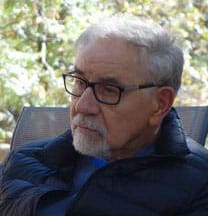In the 1950s, a few years after Yiddish culture in Europe had been decimated, there was a bustling metropolis in the Western Hemisphere that still had a thriving Yiddish culture.
This city had a number of schools in which classes were taught in Yiddish; there was an active theatrical scene, a couple of daily newspapers, books, literary magazines, songs and musicals — all in Yiddish. There were Yiddish comedians, as well as cafes where Yiddish-speakers gathered to chat and drink tea with a bissel (little) lemon. And there were vacation resorts, a few hours’ drive from the city, where Yiddish was regularly heard.
New York? Montreal? Actually, Buenos Aires.
Did you know, for example, that Pesach Burstein and his wife, Lillian Lux, arguably the most prominent couple in Yiddish theater, first toured Argentina in 1938, lived in Buenos Aires in the 1950s and regularly performed there in Yiddish, along with their children?
That vibrant Argentine-Yiddish culture — which existed through much of the 20th century — will be celebrated and remembered on Saturday, Oct. 20, at the Roy and Edna Disney/CalArts Theater (REDCAT). Co-presented by Yiddishkayt Los Angeles, there will be two performances of “Una Noche Idishe: An Argentine Yiddish Experience” at 8:30 and 10:30 p.m., the late-night second show well-suited for Argentines, who — if they were living in South America — would be starting to eat dinner at that time.
Music will be provided by Klezmer Juice, an ensemble featuring the heartbreakingly soulful clarinet stylings of Gustavo Bulgach, an Argentine Jew who’s lived in Los Angeles for the last 15 years. (If you saw “The Wedding Crashers” — remember a Jewish wedding early in the movie? — then you saw Klezmer Juice in action.)
Did you enjoy this article?
You'll love our roundtable.
Editor's Picks



What Ever Happened to the LA Times?

Who Are the Jews On Joe Biden’s Cabinet?


No Labels: The Group Fighting for the Political Center
Latest Articles


Where Were You on July 4, 1976?

Dealing With Mamdani

A Bisl Torah — Tiny, Little Jewish Joys

Hayek’s Fatal Conceit and the Red Heifer























 More news and opinions than at a Shabbat dinner, right in your inbox.
More news and opinions than at a Shabbat dinner, right in your inbox.